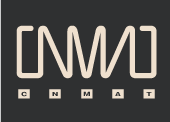CNMAT Courses
MUSIC 29 Music Now - 4 Units
This course explores the basic materials and models that set the boundaries for various present-day musical experiences. Students are exposed to terminology and modes of engagement with the aim of inspiring new paradigms of listening (e.g., listening to silence, noise, space, and timbre). Composers and musicians of today continue to explore new ways of defining and organizing sounds into music. The course focuses on the most adventurous music of our time, but the concepts learned can be applied to any style of music. The course is designed to enrich and deepen the students' musical abilities through direct involvement with musical materials. Direct engagement through listening and participatory learning is accomplished in part with software created at the Center for New Music and Audio Technologies. The course does not require students to be able to read music nor to own a personal computer.
Hours & Format
Fall and/or spring: 15 weeks - 2 hours of lecture and 1 hour of laboratory per week
Summer: 6 weeks - 5.5 hours of lecture and 2.5 hours of laboratory per week
Additional Details
Subject/Course Level: Music/Undergraduate
Grading/Final exam status: Letter grade. Final exam required.
Instructors: Campion
MUSIC 30 Computational Creativity for Music and the Arts- 4 Units
Music 30 aims to explore the potential that computers have to support, enhance, and challenge music creation. The course is divided into three modules. The first module introduces the essential mathematical and machine learning tools and gives a general introduction to sound. The second module shows real applications of creative computing for music. The third module focuses on the connection between society and computational creativity at large.
Hours & Format
Fall and/or Apring: 15 weeks - 2 hours of lecture and 1 hour of laboratory per week
Summer: 6 weeks - 5.5 hours of lecture and 2.5 hours of laboratory per week
Additional Details
Subject/Course Level: Music/Undergraduate
Grading/Final exam status: Letter grade. Final exam required.
Instructors: Cella
MUSIC 107 Independent Projects in Computer Music and Undergraduate Research at CNMAT - 4 Units
Students will develop, in consultation with the instructor, a semester length project that focuses on creating a piece of music, and/or researching and building new software tools for music.
Rules & Requirements
Prerequisites: Completion of Music 158A or 159 with letter grade of A or A+ and consent of the instructor
Repeat rules: Course may be repeated for credit when topic changes.
Hours & Format
Fall and/or spring: 15 weeks - 3 hours of lecture per week
Additional Details
Subject/Course Level: Music/Undergraduate
Grading/Final exam status: Letter grade. Alternative to final exam.
Instructor: Campion, Cella
MUSIC 158A Sound and Music Computing with CNMAT Technologies - 4 Units
Terms offered: Fall 2018, Summer 2018 First 6 Week Session, Summer 2018 Second 6 Week Session
Explores the intersection of music and computers using a combination of scientific, technological, and artistic methodologies. Musical concerns within a computational frame are addressed through the acquisition of basic programming skills for the creation and control of digital sound. Will learn core concepts and techniques of computerbased music composition using the Cycling74/MaxMSP programming environment in combination with associated software tools and programming approaches created by the Center for New Music and Audio Technologies. Included will be exposure to the essentials of digital audio signal processing, musical acoustics and psychoacoustics, sound analysis and synthesis. The course is hands-on and taught from the computer lab.
Rules & Requirements
Prerequisites: Consent of the instructor, or a single music course drawn from the following list: Music 20A/B, Music 25A, Music 29, or any single advanced musicianship or harmony course
Hours & Format
Fall and/or spring: 15 weeks - 3 hours of lecture per week
Summer: 6 weeks - 7.5 hours of lecture per week
Additional Details
Subject/Course Level: Music/Undergraduate
Grading/Final exam status: Letter grade. Alternative to final exam.
MUSIC 158B Situated Instrument Design for Musical Expression - 4 Units
Terms offered: Spring 2018, Spring 2017, Spring 2016
The practice and theory of contextual instrument design for use in musical expression is explored. Students create new instruments and performance environments using a variety of physical interaction paradigms, programming practices, and musical processes emerging from the UC Berkeley Center for New Music and Audio Technologies (CNMAT). Building on the methodologies established in Music 158A, the course develops aesthetic, analytic and technical skills through discussion, empirical study, and collaborative engagement. With a balance of artistic and technical concerns, participants deepen understanding of the creative process, demonstrating the results through class installation and public performance.
Rules & Requirements
Prerequisites: Music 158A or consent of the instructor
Repeat rules: Course may be repeated for credit without restriction.
Hours & Format
Fall and/or spring: 15 weeks - 3 hours of lecture and 3 hours of laboratory per week
Summer: 6 weeks - 7.5 hours of lecture and 7.5 hours of laboratory per week
Additional Details
Subject/Course Level: Music/Undergraduate
Grading/Final exam status: Letter grade. Alternative to final exam.
MUSIC 159 Computer Programming for Music Applications - 4 Units
Software engineering for musical applications covering programming concepts for live-performance real-time systems as well as cloud-based music information retrieval applications. Topics include the software representation of sound and music, real-time scheduling, analysis of gestures from systems of sensors, common design patterns, analysis and controlled synthesis, and machine learning applications for music understanding and creation. Behavior driven design and test driven development are core ideas that permeate the course.
Rules & Requirements
Repeat rules: Course is not repeatable.
Hours & Format
Fall and/or spring: 15 weeks - 3 hours of lecture and 3 hours of laboratory per week
Summer: 6 weeks - 7.5 hours of lecture and 7.5 hours of laboratory per week
Additional Details
Subject/Course Level: Music/Undergraduate
Grading/Final exam status: Letter grade. Alternative to final exam.
